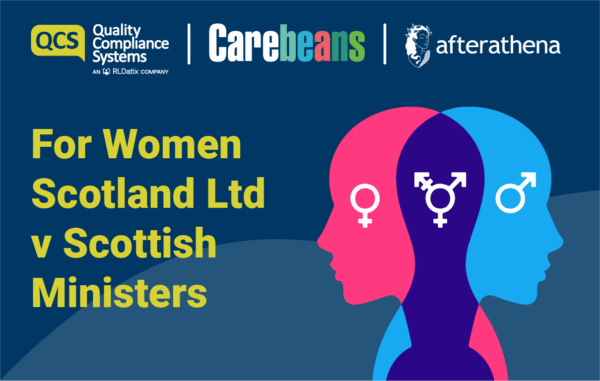In April this year, in the case of For Women Scotland Ltd v Scottish Ministers, the UK Supreme Court overturned a decision of the Scottish Court of Session (the SCS), giving a landmark ruling on gender under the Equality Act 2010 (the EA).
Background
In 2023, the SCS held that the term ‘woman’ includes trans women who have obtained a Gender Recognition Certificate (GRC).
The case stemmed from updated statutory guidance under the Gender Representation on Public Boards (Scotland) Act 2018 (the Act), which aims to ensure gender balance in public appointments. The guidance stated that trans women with GRCs should be considered women for the purpose of the Act.
The ‘For Women Scotland’ group challenged this interpretation, arguing that it unlawfully extended the definition of ‘woman’ under the EA, which they claimed should be based on biological sex.
The SCS confirmed that:
- Under the Gender Recognition Act 2004 (the GRA), once a person has a GRC, their gender is legally their acquired gender ‘for all purposes’, including for discrimination protection under the EA
- The definitions of ‘woman’ and ‘sex’ under the Act can be read consistently with the GRA. The court found no legal barrier to interpreting ‘woman’ to include trans women with a GRC
- A trans person with a GRC has two separate protected characteristics: gender reassignment and sex (based on their acquired gender). This does not conflate the two under the law
- This interpretation does not make the EA unworkable, including in sensitive areas such as single-sex services or schools, where specific exceptions can still be applied if justified
Supreme Court decision
Overturning the decision of the SCS, Lord Hodge concluded that the meanings of the terms ‘sex’, ‘man’ and ‘woman’ in the EA refer to ‘biological sex’.
According to the UKSC, any other interpretation would make the EA ‘incoherent and impracticable’. It confirmed that ‘a person with a GRC in the female gender does not come within the definition of a ‘woman’ under the EA and the statutory guidance issued by the Scottish ministers is incorrect.’
The UKSC confirmed that its interpretation should not remove protection from transgender people, whether or not they have a GRC. The following protections are available to transgender people under the EA:
- Protection from discrimination on the grounds of gender reassignment
- Protection from sex discrimination for trans women because they are perceived to be women
What the Supreme Court ruling means for employers
This ruling brings clarity for employers in confirming that individuals assigned male at birth, even if they possess a GRC, are not legally recognised as women for the purposes of claiming sex discrimination under the EA.
However, it’s important to note that the ruling does not diminish the protections afforded to transgender individuals under the protected characteristic of gender reassignment in the EA. Employers must continue to uphold these protections, ensuring that transgender employees are not subjected to discrimination or harassment.
Equality and Human Rights Commission (EHRC) Guidance
Following the UKSC decision, the EHRC issued interim guidance to support workplaces and services. However, the guidance is brief and a consultation concluded on 30 June, which will feed into further, much needed, guidance from the EHRC.
As things currently stand, the EHRC has confirmed that in workplaces, ‘it is compulsory to provide sufficient single-sex toilets, as well as sufficient single-sex changing and washing facilities where these facilities are needed.’
However, ‘it is not compulsory for services that are open to the public to be provided on a single-sex basis or to have single sex facilities such as toilets. These can be single-sex if it is a proportionate means of achieving a legitimate aim and they meet other conditions in the Act. However, it could be indirect sex discrimination against women if the only provision is mixed-sex.’
The EHRC aims to provide an updated Code of Practice to the UK Government by summer, for ministerial approval ahead of the full draft Code being laid in Parliament after the summer recess.
Unfortunately, the current position leaves many employers in a grey area when it comes to facilities for their staff and as such.
If you have any specific questions in relation to this topic, please do not hesitate to contact a member of the AfterAthena team (part of the Napthens Group) who are able to offer 30 minutes of free advice to QCS members.
If you have any questions in relation to environmental proposals to help support employees take steps in relation to climate change, please do not hesitate to contact a member of the AfterAthena team (part of the Napthens Group) who are able to offer 30 minutes of free advice to QCS members.
Contact AfterAthena





